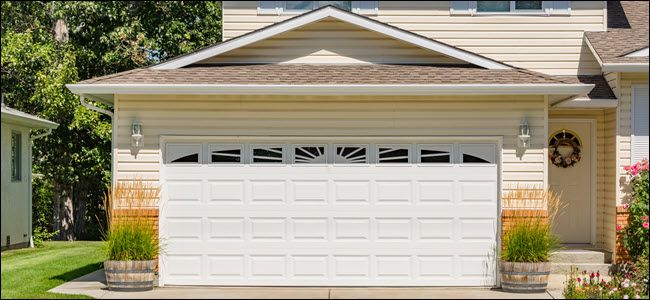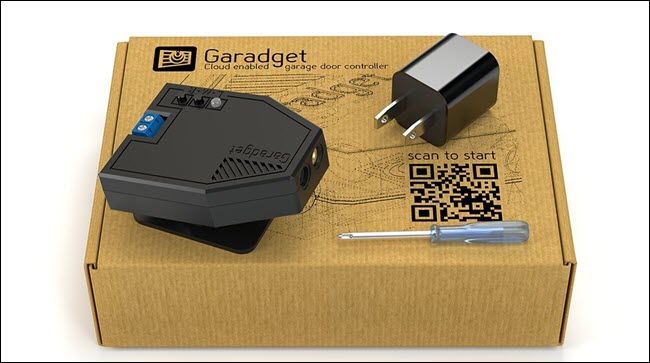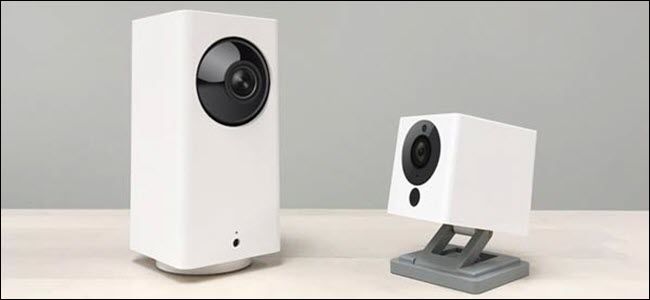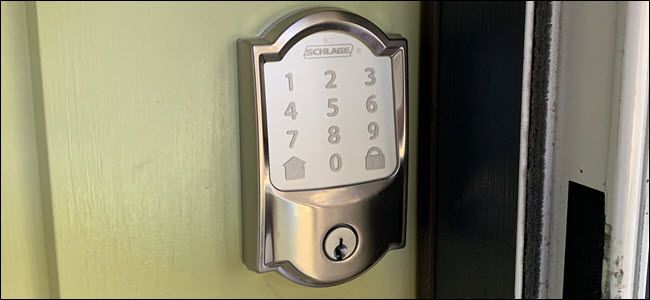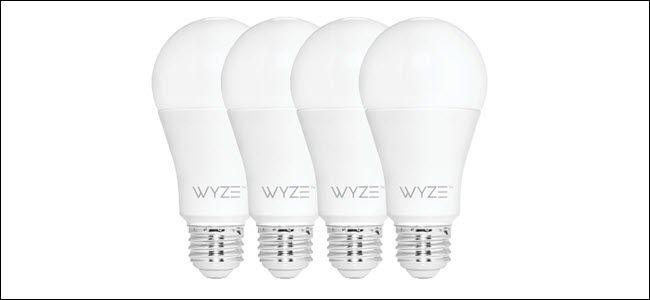Quick Links
How often have you asked yourself, "did I close the garage door?" With a smart garage, you won't have to wonder. That's just one of the many reasons to bring smart home technology into your garage, too.
Start With a Smart Garage Door Opener
Unless you have a carport, it's very likely your garage has a garage door, and thankfully there's no shortage of options to make your garage door opener smart. And that's good too because you'll get a lot of peace of mind when you switch to a smart opener. If you can't remember if you closed the garage door, for instance, you'll be able to pull out your phone and check. Did you forget? You can then close it too.
Depending on your smart garage door opener you buy, you may even be able to close it using Alexa or your Google Home. Just keep in mind that most smart garage door openers won't let you open them by voice for security reasons. Some smart speakers can hear commands through a closed window. You wouldn't want someone to yell the command to open your garage door to break into your home.
You have two basic options for smart garage door openers: add a device to your existing dumb garage door opener to make it smart or replace your garage door opener with one that is already smart. Adding a smart device to your existing opener is an easier and cheaper option. Generally, that's probably the way you should go unless you have a specific reason for replacing the entire opener (like wanting a quieter model).
Most smart garage door openers work by placing a sensor on the door that measures current tilt or aiming a laser that hits the door when it's in the closed position. They then mimic your wireless garage door opener to send an open and close signal.
While there are plenty of smart device add-ons to choose from, which one you choose will be determined in part by who made your existing garage door opener.
If you have a Chamberlain garage door opener, you may have to use Chamberlain's hub. The company uses a proprietary protocol that prevents many other smart devices from seamlessly operating your Chamberlain door openers.
If you don't have a Chamberlain, you have plenty of options ranging from Nexx to Garadget.
And if you want, you can always buy a garage door opener, like Ryobi's Opener, that comes with smart home tech. It's more expensive and harder to install. But if your existing garage door opener is older, a new one may come with additional benefits like a quieter opening mechanism or better lights.
Combine a Camera with Sensor to See Who's There
Although it's getting harder to fake garage door signals, it's still possible. Just because someone managed to open your garage door doesn't mean they belong. And what if you forgot to check whether you closed the garage door?
A camera and sensor system can help. By pairing a Wyze IR sensor with a Wyze Cam, you can get a notification anytime someone steps into your garage (or the sensor detects any other movement). And you can set up a routine that starts recording video when the sensor detects motion. The IR sensor is small and will stick directly to your garage door opener. All you need is a place to tuck away the camera.
Another more expensive option is the Nest Cam. Although you don't benefit from a dedicated motion sensor, you can subscribe to Nest Aware for smart motion alerts and notifications about familiar faces.
If you're not sure you trust your smart garage door opener to detect that you closed the garage door, the camera is one more confirmation. You can pull up the feed and see for yourself.
Add a Smart Lock to the Other Door
Whether your garage is attached to your home or not, you can benefit from a smart lock on its door. Not only is it one more barrier of entry to keep unwanted people out, but it's another component that makes your day easier. Can't remember if you locked the door? That's OK; you can lock it from an app, or ask Google Assistant or Alexa to lock the door. And with routines, you can automatically lock the door every morning and night.
Smart locks are also great because they cut down on the keys you need to carry. If your keychain holds a dozen keys, it's nice to dump the home keys in favor of a smart lock.
Smart locks use a variety of different wireless standards, from Z-Wave and Zigbee to Wi-Fi. If you already have a smart home hub, then a Z-wave or Zigbee lock makes the most sense. Otherwise, Schlage's Wi-Fi lock will work directly with Alexa and Google Assistant. The good news is, smart locks are straightforward to install.
Use Smart Plugs and Lights to Cut Down on Electricity
Sure your garage door opener turns its built-in light off automatically, but what about the other lights in your garage? And if you use your garage as a workshop, chances are all your batteries for your cordless tools have a home in the garage, and they're plugged in all the time. Even when the batteries aren't actively charging, the chargers themselves draw energy to remain active, measure your battery's temperature and current charge, and illuminate their power level indicator lights.
For those reasons, your garage may be using more electricity than you know. How often have you left a garage light on all day? Smart lights will take care of that. You can schedule them to turn off every morning, for instance. And if you regularly arrive home from work after dark, you can even schedule them to turn on a few minutes before you arrive.
If you're using the Wyze IR sensor to start video recordings, you can also have it turn on Wyze bulbs. You can even limit the rule to certain times of the day (though in that case, you'll want one rule for video recording and another rule for lights).
Smart plugs can save electricity too. While you do want your cordless batteries charged when you need them, you probably don't need them charging all day long every day. Batteries do a good job of holding a charge when they aren't in use. That means you could schedule the smart plug to turn off an outlet every other day. Or, if you're a weekend project warrior, you could leave the smart plug off throughout the week and turn them on overnight on Friday.
What Smart Garage Tech Should You Start With?
What smart tech you add to your garage depends on how you use the space. If it's your workshop or storage area, you may want to focus on smart lights and plugs. But if it's your home's primary place of entry, then focus on the tech that adds peace of mind and security. At least it will be one less thing to worry about as you drive to work.

